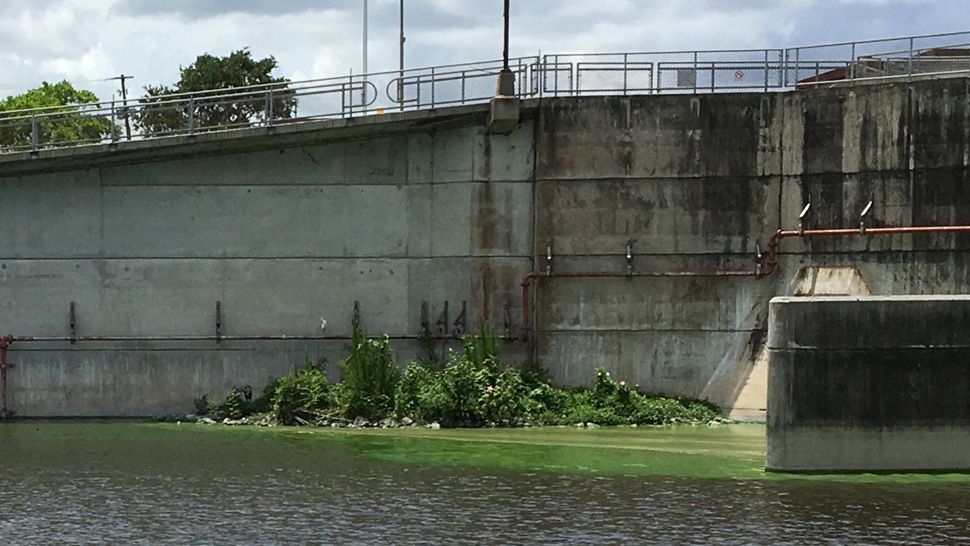OKEECHOBEE, Fla. -- In Florida’s midterm elections, the mudslinging is covered in green slime.
- Nearly 90 percent of Lake Okeechobee covered in green algae
- Algae affecting fish, wildlife in nearby rivers
- Scott, Nelson blaming each other for Everglades neglect
The green algae covering Lake Okeechobee is blooming into a huge political fight. Ninety percent of Lake O’s 730 square miles is covered in green sludge the consistency of guacamole.
“It is affecting fish in the rivers nearby,” said Clayton Burney, who has been fishing along the banks of Lake Okeechobee for decades. “The algae mixes with salt water and becomes toxic. The fish can’t breathe.”
The green slime pollutes surrounding rivers, threatens fish kills and spoils local, tourism-driven economies. It is fueled by chemical runoff.
“Fertilizer. Big Sugar,“ said Burney. “It’s a money thing. Everybody is too greedy to correct the problem.”
Burney believes money from the powerful sugar industry has prompted politicians from both parties for years to turn a blind eye to pollution.
The algae problem has bubbled up before, but this is an election year. Politicians are eager to find a solution and to blame their opponent.
Touring Lake Okeechobee by boat last week, Governor Rick Scott blamed Senator Bill Nelson for years of inaction at the federal level.
“I’m frustrated with the federal government,” said Governor Scott. “If they had funded all the projects they should have funded, some of these things might not have happened.”
Nelson, who is locked in a tight challenge with Gov. Scott for his U.S. Senate seat, pointed the finger of blame back at Scott, calling the governor an “election year environmentalist” who has otherwise throughout his career rolled back protection against pollution.
“I was getting money to build the dike long before Gov. Scott even knew there was a Lake Okeechobee,” said Nelson.
The slimy problem runs deep. It is rooted in a generation of neglecting the Everglades, chemical run-off and big money in political contributions.
Burney worries if something doesn’t change soon, it is Florida’s environment that will be the biggest loser.
“Cut back on those chemicals, go organic,” he laughs as he pulls a good-sized crappie out of the water. “That’s a keeper.“



